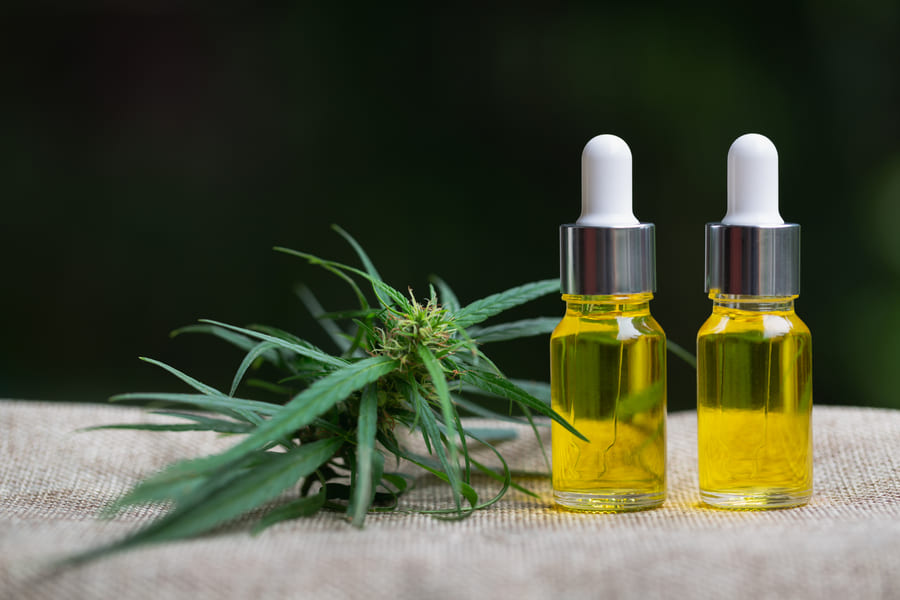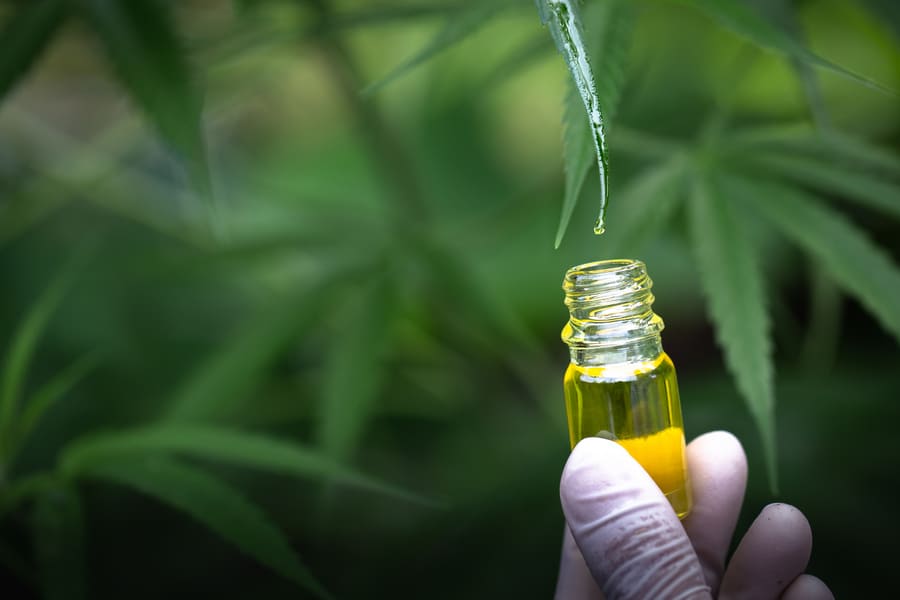
Cannabis oil is a versatile substance that you can easily make at home. It can be used in a variety of recipes, from baked goods to salad dressings, and offers numerous benefits, including pain relief, relaxation, and sleep aid. This guide will take you through the steps of making this, ensuring you have all the information needed for a successful infusion.
Understanding Cannabis Oil
Cannabis oil is a cannabis-infused oil made by extracting the active cannabinoids from cannabis flowers using a carrier oil. This oil can be used in cooking, baking, or even applied topically. Unlike CBD oil or hemp oil, which are often derived from industrial hemp and contain minimal THC, cannabis oil uses the entire plant, providing a full-spectrum product that includes THC, CBD, and other beneficial cannabinoids.
The Benefits of Making Cannabis Oil
Making your own canna oil at home ensures that the oil contains the full range of cannabinoids, providing a stronger and more effective product. Full-spectrum cannabis oil takes advantage of the “entourage effect,” where the various cannabinoids and terpenes work together to enhance the oil’s therapeutic effects. Additionally, homemade cannabis oil can be tailored to your preferred potency and flavor by choosing specific strains of cannabis and types of oil.
What You Need to Make Cannabis Oil
Before starting, gather the following materials:
- 3.5 to 7 grams of cannabis flower
- 1 cup of high-quality cooking oil (such as olive oil, coconut oil, or avocado oil)
- Cannabis grinder
- Nonstick baking sheet
- Stovetop pot and heat-safe bowl (or a double boiler)
- Thermometer (optional)
- Cheesecloth or a fine mesh strainer
- Airtight glass jar
Decarboxylating the Cannabis
Decarboxylating, or “decarbing,” is a crucial step in making cannabis oil. This process activates the cannabinoids, making them more effective when consumed.
- Preheat your oven to 240 degrees Fahrenheit.
- Grind the cannabis into small, even pieces using a grinder.
- Spread the ground cannabis evenly on a nonstick baking sheet.
- Bake for 30 minutes, ensuring not to exceed 40 minutes to avoid damaging the terpenes.
Infusing the Oil
Once your cannabis is decarbed, it’s time to infuse it with the oil.
- Set up a double boiler by filling a pot halfway with water and placing a heat-safe bowl on top. The bowl should fit without touching the water.
- Heat the double boiler on low, bringing the water to a simmer.
- Add 1 cup of oil to the bowl, heating it to between 160 and 180 degrees Fahrenheit.
- Stir in the decarbed cannabis, maintaining the temperature and allowing it to steep for 2 to 4 hours. Stir occasionally and add water to the bottom pot if necessary.
Straining and Storing
After the infusion process, strain the oil to remove the plant material.
- Prepare your strainer by placing a cheesecloth over an open jar.
- Carefully remove the oil mixture from the double boiler using an oven mitt.
- Strain the oil through the cheesecloth into the jar, repeating the process twice for best results.
Storing Your Cannabis Oil
Store the oil in an airtight container, preferably glass, to extend its shelf life. Keep it in a cool, dark place, like a cupboard, to prevent light degradation. Properly stored oil can last up to six months.

How to Dose Your Cannabis Oil
Dosing cannabis oil correctly is essential for a pleasant experience. The potency of your oil will depend on the THC content of the cannabis used and the ratio of cannabis to oil. For our recipe using 7 grams of cannabis and 1 cup of oil, a teaspoon typically contains 3 to 5 milligrams of THC.
Calculating THC Content
To estimate the THC content in your oil:
- Determine the THCA percentage of your cannabis.
- Multiply the THCA percentage by the weight of the cannabis (in grams) and by 1000 to get the total milligrams of THCA.
- Convert THCA to THC by multiplying the result by 0.88 (accounting for decarboxylation).
- Estimate the active THC in the final oil by assuming 70% to 95% potency retention.
For example, if you use 7 grams of cannabis with 25% THCA:
- 7 grams x 0.25 x 1000 = 1750 mg of THCA
- 1750 mg x 0.88 = 1540 mg of THC
- 1540 mg x 0.70 = 1078 mg of THC in the final oil
- 1078 mg divided by 48 teaspoons = approximately 22 mg THC per teaspoon
Start with a small dose, such as half a teaspoon, and wait 30 minutes to an hour to gauge its effects before consuming more.
Using Cannabis Cooking Oil
Cannabis cooking oil is incredibly versatile. It can be used in both savory and sweet recipes. Here are a few ideas:
- Drizzle over grilled vegetables or fish
- Mix with balsamic vinegar for a salad dressing
- Bake into cakes, brownies, or cookies
When cooking or baking, keep the temperature below 340 degrees Fahrenheit to preserve the cannabinoids and terpenes.
Choosing the Right Carrier Oil
The type of oil you use will affect the flavor and efficiency of your cannabis oil. Coconut oil is highly effective for THC infusion but has a strong flavor that may not suit all dishes. Olive oil offers added health benefits due to its antioxidants and anti-inflammatory properties. Avocado oil is another good option, providing a mild flavor and high smoke point.
Experimenting with Strains
The strain of cannabis you choose will influence the flavor and effects of your oil. Strains with terpenes you enjoy will likely taste good in your oil. Consider experimenting with high-CBD strains or those with specific terpene profiles to find what works best for you.
Expanding Your Cannabis Oil Uses
Once you’ve mastered the basic cannabis oil recipe, the possibilities for its use in the kitchen are endless. Homemade cannabis-infused oil can be a versatile addition to many dishes you plan on cooking. For example, you can make cannabis cooking oil to replace vegetable oil in any savory recipe, ensuring that every meal offers a consistent and enjoyable experience.
Additionally, by using coconut or olive oil as your base oil, you can create a flavorful thc oil perfect for drizzling over salads, mixing into smoothies, or baking into your favorite desserts. The key to a successful infusion is maintaining the right temperature during the process to preserve the cannabinoids in cannabis, ensuring the final product is both potent and delicious.
For those interested in more therapeutic applications, making canna oil at home allows for the creation of canna oil and cbd oil combinations tailored to personal needs. You can make your own topical salve by combining cannabis concentrate with infused oil like cannabis coconut oil, which can be applied directly to the skin for localized relief.
This diy cannabis approach not only makes the oil at home easy but also ensures you control the potency and purity of your products. When properly stored in an airtight container, your cannabis oil can maintain its potency for months, making it a reliable component of your cannabis edibles and therapeutic applications. Experiment with different cannabis strains and carrier oils to discover the perfect blend for your needs, and always remember to start with a small dose to gauge the effects before using more.
Summary
Making cannabis oil at home is a straightforward process that allows you to create a versatile, potent product tailored to your needs. By following these steps and using high-quality ingredients, you can make oil that enhances your cooking and offers the full benefits of cannabis.
Whether you’re new to the cannabis industry or a seasoned cannabis connoisseur, this guide will help you produce high-quality homemade cannabis oil. Remember to start with small doses and experiment with different strains and oils to find your perfect match. For more information and to explore a wide range of cannabis products, visit coffee shop pattaya weedshop.one .
Discover the best cannabis products and take your cannabis experience to the next level with our comprehensive offerings. Happy cooking!